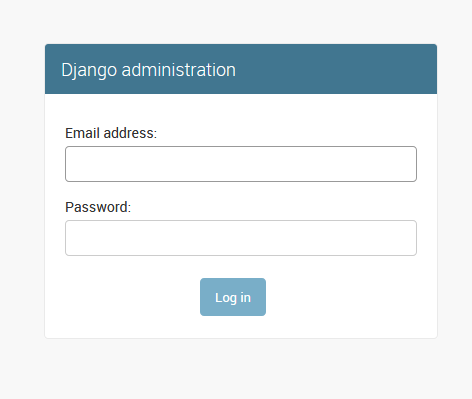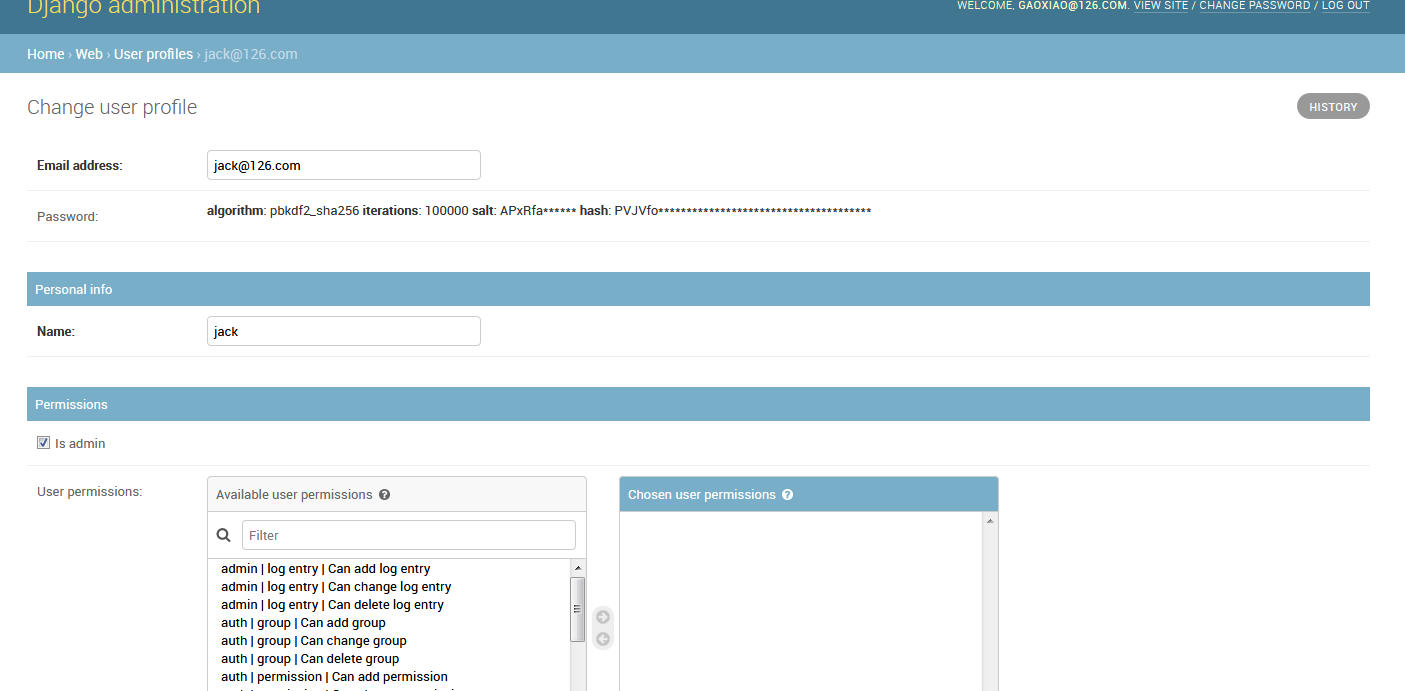Django中admin添加登录账户的自定制认证
我们在设计表结构的时候关于userprofile的设计的时候一般会用onetoone的设计,这样在生产环境中有安全隐患的,所以我们需要自定制登录账户信息
怎么自定制呢?往下看
原来我们设计登录账户的表结构是这样的
1 class UserProfile(models.Model): 2 name = models.OneToOneField(max_length=64) 3 hosts = models.ManyToManyField("Host", blank=True) 4 host_groups = models.ManyToManyField("HostGroup", blank=True) 5 6 def __str__(self): 7 return self.name 8
其实user也是继承了AbstractBaseUser,所以我们直接继承AbstractBaseUser就ok
自定制登录账户需要修改成:
class UserProfileManager(BaseUserManager): def create_user(self, email, name, password=None): """ Creates and saves a User with the given email, date of birth and password. """ if not email: raise ValueError('Users must have an email address') user = self.model( email=self.normalize_email(email), name=name, ) user.set_password(password) self.is_active = True user.save(using=self._db) return user def create_superuser(self, email, name, password): """ Creates and saves a superuser with the given email, date of birth and password. """ user = self.create_user( email, password=password, name=name, ) user.is_admin = True user.save(using=self._db) return user class UserProfile(AbstractBaseUser,PermissionsMixin): email = models.EmailField( verbose_name='email address', max_length=255, unique=True, ) name =models.CharField(max_length=64) hosts = models.ManyToManyField("Host",blank=True) host_groups = models.ManyToManyField("HostGroup",blank=True) is_active = models.BooleanField(default=True) is_admin = models.BooleanField(default=False) objects = UserProfileManager() USERNAME_FIELD = 'email' REQUIRED_FIELDS = ['name'] def __str__(self): return self.email def has_perm(self, perm, obj=None): "Does the user have a specific permission?" # Simplest possible answer: Yes, always return True def has_module_perms(self, app_label): "Does the user have permissions to view the app `app_label`?" # Simplest possible answer: Yes, always return True @property def is_staff(self): "Is the user a member of staff?" # Simplest possible answer: All admins are staff return self.is_admin
另外还需要在settings中设置一下,让django使用该认证
AUTH_USER_MODEL = 'web.UserProfile'
显示到页面上就是在admin中设置
from django.contrib import admin from web import models # Register your models here. from django import forms from django.contrib import admin from django.contrib.auth.models import Group from django.contrib.auth.admin import UserAdmin as BaseUserAdmin from django.contrib.auth.forms import ReadOnlyPasswordHashField from web.models import UserProfile class UserCreationForm(forms.ModelForm): """A form for creating new users. Includes all the required fields, plus a repeated password.""" password1 = forms.CharField(label='Password', widget=forms.PasswordInput) password2 = forms.CharField(label='Password confirmation', widget=forms.PasswordInput) class Meta: model = UserProfile fields = ('email', 'name') def clean_password2(self): # Check that the two password entries match password1 = self.cleaned_data.get("password1") password2 = self.cleaned_data.get("password2") if password1 and password2 and password1 != password2: raise forms.ValidationError("Passwords don't match") return password2 def save(self, commit=True): # Save the provided password in hashed format user = super().save(commit=False) user.set_password(self.cleaned_data["password1"]) if commit: user.save() return user class UserChangeForm(forms.ModelForm): """A form for updating users. Includes all the fields on the user, but replaces the password field with admin's password hash display field. """ password = ReadOnlyPasswordHashField() class Meta: model = UserProfile fields = ('email', 'password', 'name', 'is_active', 'is_admin') def clean_password(self): # Regardless of what the user provides, return the initial value. # This is done here, rather than on the field, because the # field does not have access to the initial value return self.initial["password"] class UserProfileAdmin(BaseUserAdmin): # The forms to add and change user instances form = UserChangeForm add_form = UserCreationForm # The fields to be used in displaying the User model. # These override the definitions on the base UserAdmin # that reference specific fields on auth.User. list_display = ('email', 'name', 'is_admin') list_filter = ('is_admin',) fieldsets = ( (None, {'fields': ('email', 'password')}), ('Personal info', {'fields': ('name',)}), ('Permissions', {'fields': ('is_admin','user_permissions','groups')}), ) # add_fieldsets is not a standard ModelAdmin attribute. UserAdmin # overrides get_fieldsets to use this attribute when creating a user. add_fieldsets = ( (None, { 'classes': ('wide',), 'fields': ('email', 'name', 'password1', 'password2')} ), ) search_fields = ('email',) ordering = ('email',) filter_horizontal = ('user_permissions','groups') # Now register the new UserAdmin... admin.site.register(UserProfile, UserProfileAdmin) # ... and, since we're not using Django's built-in permissions, # unregister the Group model from admin. admin.site.unregister(Group)
这样就大功告成。
页面展示:




